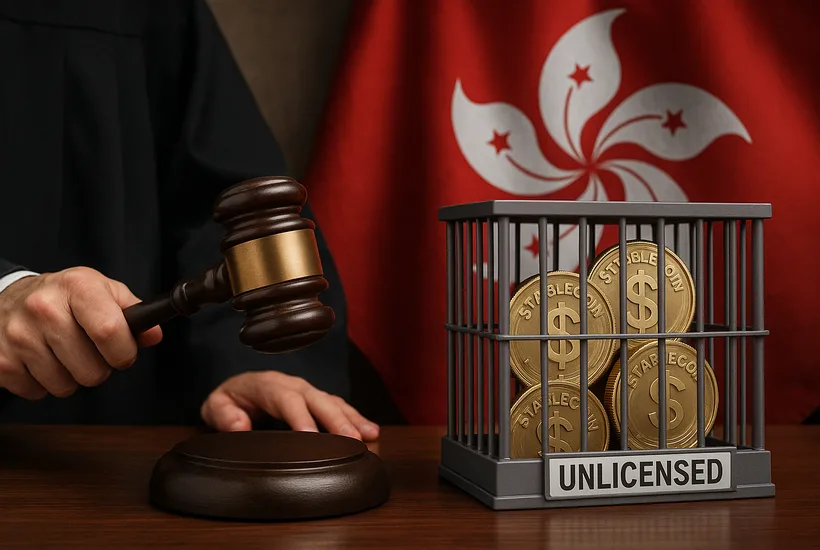- Hong Kong makes it illegal to promote unlicensed stablecoins to the public starting Aug. 1
- Over 40 firms have applied for stablecoin licenses, but only a limited number of licenses will be granted
- New rules require stablecoins to be fully backed by high-quality, liquid reserves to ensure stability
Hong Kong is set to tighten its grip on the stablecoin market, announcing that it will soon be illegal to promote unlicensed stablecoins to the public. The move is part of the city’s broader effort to regulate the crypto space, and it comes ahead of the Stablecoins Ordinance scheduled to take effect on August 1, 2025.
Eddie Yue, the Chief Executive of the Hong Kong Monetary Authority (HKMA), issued a warning this week, urging the public to remain cautious about market euphoria surrounding stablecoins. Yue emphasized that recent promotions, in particular, have bordered on market manipulation or fraud, prompting the regulatory crackdown.
Dozens of firms seek stablecoin licenses amid tightening rules
As Hong Kong prepares to enforce the new rules, more than 40 firms have expressed interest in acquiring stablecoin licenses. However, Yue made it clear that only a limited number of licenses will initially be granted. This means many firms might be disappointed as the new rules start to take effect. Companies such as Ant Group, JD.com, Standard Chartered, and Circle are reportedly among those preparing applications.
Newsletter
Get weekly updates on the newest crypto stories, case studies and tips right in your mailbox.
Yue cautioned that public announcements about stablecoin ambitions often generate hype, driving stock prices and trading volumes higher, regardless of the actual viability of these projects. He urged investors to remain calm and exercise independent judgment.
Stablecoin bill sets strict rules on backing and licensing
The new stablecoin bill introduces a licensing regime for both issuers and service providers. Under the new framework, only fully-backed stablecoins will be permitted, meaning they must be backed by high-quality, liquid reserves like cash, bank deposits, or government bonds. These reserves must be held in trust, separate from company assets, and shielded from creditor claims in case of insolvency.
The bill’s introduction sets the stage for a regulated stablecoin market, where licensing will be tightly controlled. Additionally, unlicensed stablecoin offerings will be restricted to professional investors until the regulatory framework is fully implemented. The first approvals for licenses are expected to come later this year.
Global stablecoin regulation momentum builds
The Hong Kong crackdown is part of a global shift toward stablecoin regulation. International regulators, including the Bank for International Settlements, have raised concerns about the money laundering risks associated with stablecoins, particularly in cross-border transactions.
Meanwhile, in the US, landmark stablecoin legislation passed earlier this month under the Trump administration signals growing momentum for formal oversight. Hong Kong, positioning itself as a leading digital asset hub in Asia, has taken a proactive but cautious approach to regulating stablecoins.
Yue stated that the HKMA is currently finalizing its supervisory and anti-money laundering guidelines and expects to publish them by the end of July. While minor changes to the final rules are possible, the HKMA remains committed to ensuring financial crime safeguards in the stablecoin sector.













